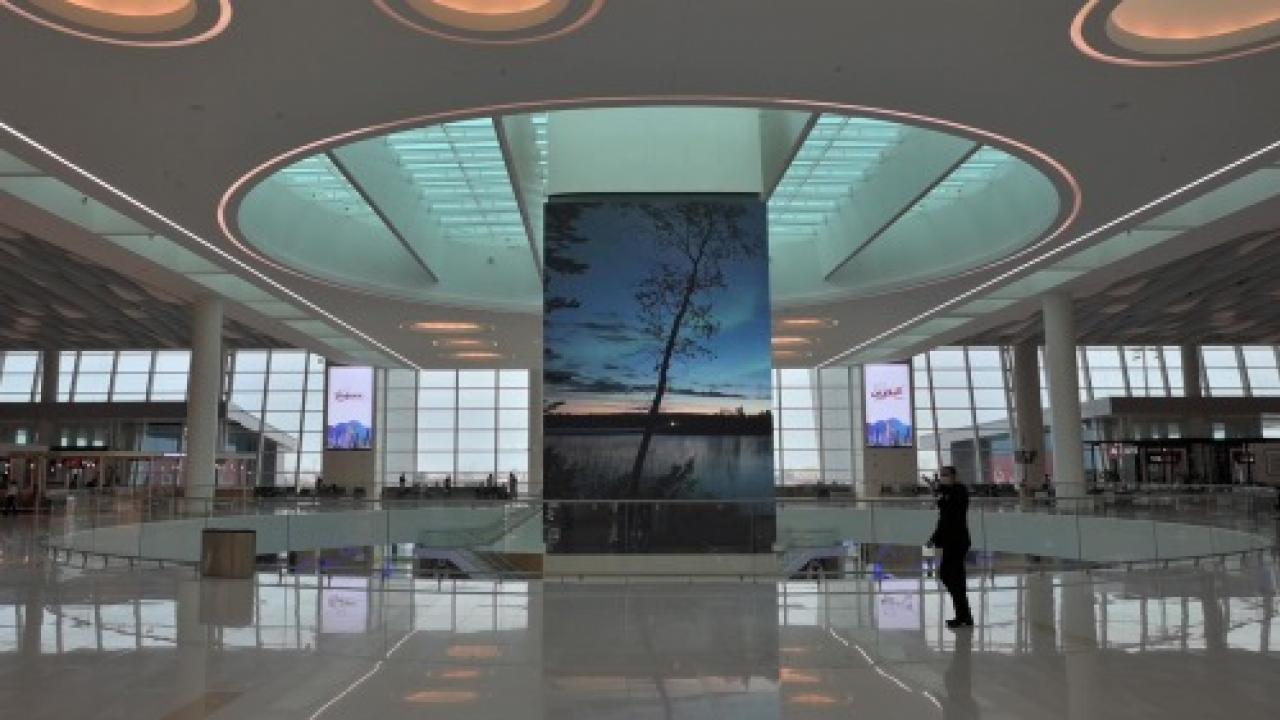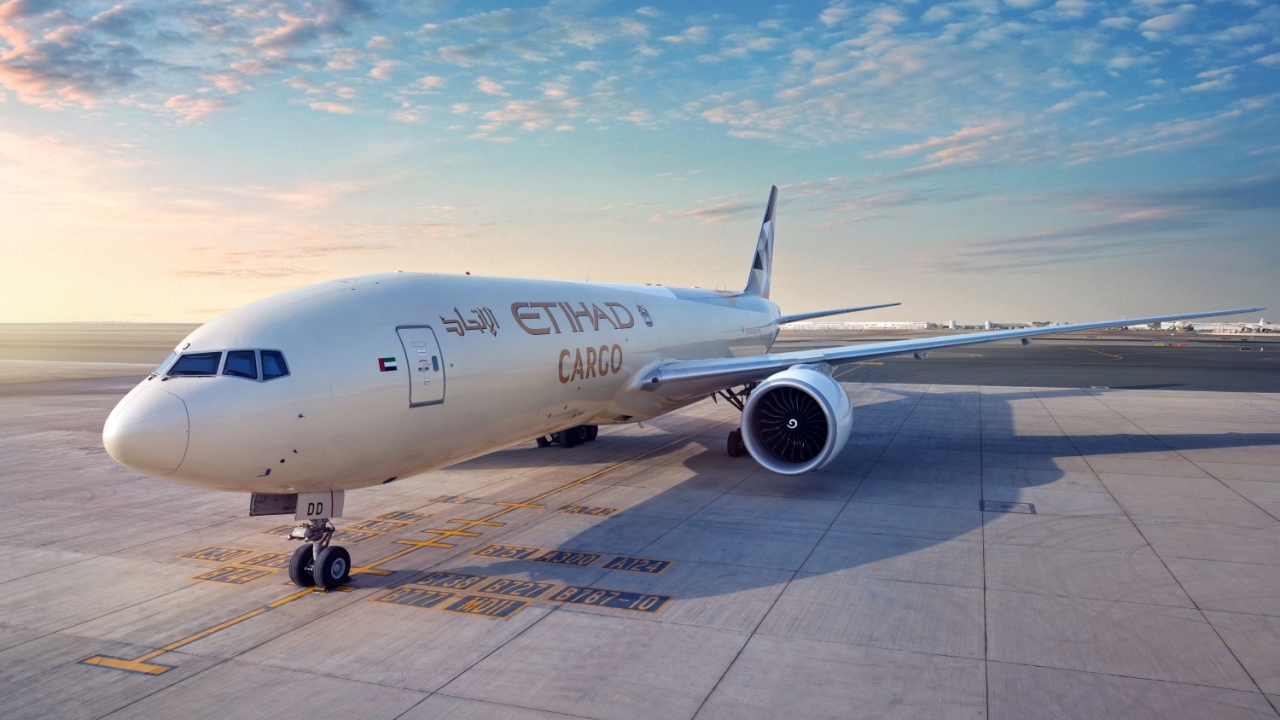One in a billion
Less than five years after its launch, a new billion dollar terminal at Bahrain International Airport is open for business. Alan Peaford took a tour and met the men behind the state-of-the art facility.

Plenty of space: The new terminal will comfortably handle 14 million people. Picture: Billypix.
Kamal bin Ahmed Mohammed is not a man given to exaggeration. As minister of transportation and telecommunication for Bahrain, when he describes the $1 billion terminal at Bahrain International Airport as the “dawn of a new era” for the country’s aviation sector, you know this is serious.
And, one step inside the spacious kilometre-long terminal building, it is clear that there is no hyperbole here.
The terminal project is the largest investment in Bahrain’s aviation sector to date and one of the most important national projects in the kingdom’s history, according to the minister.
The project also includes car parks for 5,500 vehicles, two world-class hospitality lounges for premium passengers, future-proofed contactless check-in kiosks, latest technology security, e-gates, and an expanded duty-free area surrounding a safe impressive children’s games and play area to relax all travellers. There’s even a hotel.
Both the minister and the CEO of the Bahrain Airport Company (BAC), Mohamed Yousif Al Binfalah, are clearly excited to be leading a walkaround of the new facility.
Ironically, the new terminal would have been complete and opened a year earlier, were in not for the Covid pandemic. The extra year has allowed the BAC project team – 90% Bahraini thanks to a positive graduate recruitment effort when the project was first mooted – to check and check again that the terminal was ready, first for its soft opening in February and then the inauguration later in the year.
“It was a fast-track project. We have a leader who is chasing us on every detail,” the minister said. “I think that was good to make sure that we delivered the project on time and to budget."
“I think this is the shortest period [we could have taken] to build such a facility, especially when, with airports, you have multidisciplinary systems – the mechanical system, the electrical system, the IT systems."
“The integration was amazing. At the old terminal there were, maybe, two systems. Here there are 25. It is so sophisticated.”
The new terminal is vital for the island of Muharraq. It has housed aviation activities since the flying boats would tie up on their way to India and Australia from Europe; it was an RAF base and the first real commercial airport in the Gulf.
The historic original terminal building, most recently the headquarters of Bahrain’s Civil Aviation Authority, is now being restored to its former glory, with all extensions demolished. It will become the VIP terminal for Bahrain’s growing private aviation requirement.
In the middle of the growing Muharraq urban area was the airport’s fuel farm.
“It was one of the government objectives to relocate the existing fuel farm, which happened to have housing developments around it,” said Binfalah. “We entered a partnership with the oil and gas holding company and, through that joint venture, we have built a new fuel farm, which is in the very late stages of testing and commissioning.”
The old terminal was built to handle four million passengers a year – by the time Covid hit, Bahrain was seeing just short of 10 million. The new terminal will comfortably handle 14 million but the country’s transportation masterplan still has proposals for a new airport in the future.
“The plot of land is allocated for the future airport. But I think, with everything that we’ve done on this platform, we have debottlenecked. All of the pressures that used to be put on us have gone and it allows everybody on the government side to take time to plan the future airport in a much more relaxed manner,” Binfalah said.
With the opening of the new terminal, Covid was still having an impact. Having remained open throughout the pandemic, BAA was well drilled in implementing the Bahrain Government protocols for PCR testing on arrival.
The huge baggage hall gave up a large section for the makeshift testing centre, which worked like clockwork to get passengers through the system quickly and efficiently. “From day one, we decided that this airport would be business-friendly,” the minister said. “We said it would be hassle-free and would enhance the experience of our passengers.
“Not only is the airport four times bigger than the old one and operating the latest technology, it also has our local touch to make sure that the whole experience is clear, sweet, easy to navigate and quick.”
With national flag-carrier, Gulf Air, already now based in the new terminal, passengers are beginning to pass through in growing numbers. But the leadership team can’t wait until the international carriers start returning in force.
For their premium passengers, probably one of the most impressive lounges in the world awaits. It is more like a VIP club in a five-star hotel with its different sections, each with its own charm and purpose.
“We’re not exaggerating when we say that we wanted this to be the best lounge, not only with its furniture and looks and feeling, but with the service and everything. It’s designed completely differently to other commercial lounges,” the minister explained.
With live cooking stations and areas with baby foods, the lounge has a huge number of options.
The five-star feel is complemented by the artwork on the walls. Each is an original piece produced by leading Bahraini artists.
Throughout the lounge there is always something different – including a pool table and foosball table. The highlight is a grand piano. “In peak times, we will have a pianist here,” the minister said.
A lift from the lounge heads to the hotel, with 60 rooms for relaxing transit passengers. There is a gym and, on either side, there are rooftop terraces – one with a view of Manama, Bahrain’s capital just a few minutes’ taxi ride from the airport, and the other with a view of the runway. Both views can be enjoyed with a traditional shisha pipe.
“You wouldn’t want to leave here,” I said the CEO. “That’s what we say. We think we are a destination on the way to your destination,” he replied.
It may be a boutique setting but it is certainly grand. Bahrain is back on the map.
Stay up to date
Subscribe to the free Times Aerospace newsletter and receive the latest content every week. We'll never share your email address.

